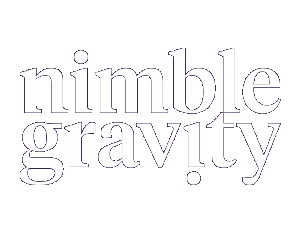Ouch. These can be some of the most difficult words to digest as a manager. After more than 25 years managing mostly technical people in all kinds of different organizations and industries I attack this one with great enthusiasm.
What do I want you to do? Solve world hunger, prevent mass shootings, find another planet that humans can inhabit and setup a civilization there, solve I-70 on a powder day AND if you can do that by Friday under budget we will be on the right track, bye!
Sometimes that straight forward response is effective in that the person understands that while my imaginative expectations are high, my true expectations are not imaginative, they are tangible. What are those tangible, very reasonable expectations?
- The goals of the project are met or on track to be met
- Tip: These goals are usually stated in a project charter or statement of work. Review these regularly to come up with your own analysis of if the project is on track. While a project manager or lead will have a literal comment about it being “on track according to plan”, individual roles should also have their own thoughts. What are some areas of strength, what are areas of weakness? Bringing your thoughts to the team can open up dialog and creativity and will also help with expectation #2. If you are in a more technical role on the project it is important that you also analyze the project according to the ‘ilities’.
- The team is performing at a high level
- Tip: This looks like, a team whose members are vocal and engaged in status and planning meetings. Its not a one person show, its everybody contributing for the purpose of achieving the goals of the meeting and of the project. Its people asking for help and people offering their assistance, its having a team culture that is ok with asking questions even if there aren’t clear answers. Its taking turns being a teacher to the group.
- The customer or users are happy, engaged and are realizing value
- Tip: It should be obvious that the customer is happy with the progress or delivery of the work. They typically tell you they are happy. “This is exactly what we needed to take the next step forward in our business” is a direct quote from a recent customer. If you cannot tell what the customer is thinking about the project, then its time to ask some questions, such as: How are we doing? What can be better from your perspective? Are we meeting the original goals of the project or do should we set new ones? What is your perspective of the team? If you’re the team lead, don’t put the customer on the spot during a big planning meeting to ask these questions, have a private conversation so they feel the ability to speak more freely.

Seems simple enough. But wait, so why is it so difficult and why does the person still want to be told what to do? Most of the time its because they don’t really mean ‘Tell me what you want me to do’, they mean one of the following:
- I don’t understand the goals of the project or product can you help set the context or remind me of it and can we discuss my role in achieving those goals?
- I don’t know what it means to be a good teammate and how to elevate the performance of those around me, what advice do you have for me?
- The customer or users don’t seem engaged, when you’ve encountered this in the past how do you overcome this?
Deciphering which questions the person really wants to ask is part of the job. Once you’ve determined that, using story telling techniques and hypothetical scenarios help to get the right message across and set the person off in the right direction.
At Nimble Gravity we would love the opportunity to get your own projects on track, after all progress is not imaginative it's very tangible. Reach out to us today if we can help you - contact us here.
{{cta('174417875352')}}















